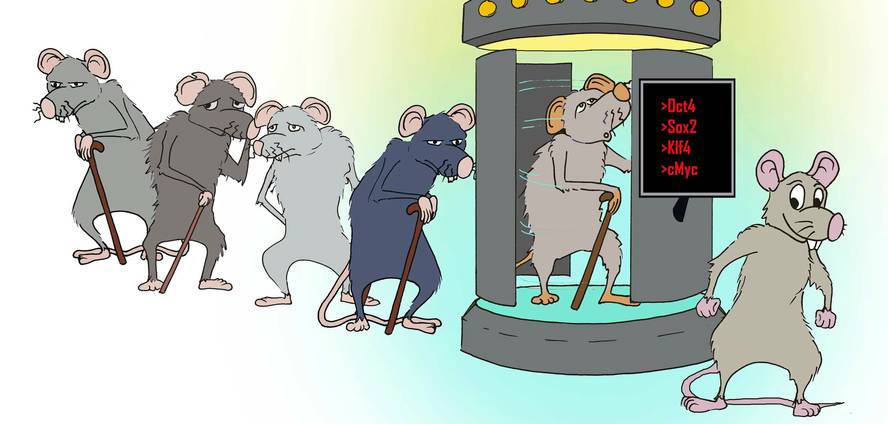Cellular reprogramming stops aging in the mouse
Researchers at the Salk Institute of California have managed to curb aging by cellular reprogramming in adult mice and extend their lives. Partial cell reprogramming has influenced the epigenetic marks of the genome and researchers believe the key is there. The study was published in Cell magazine.
Mice with a mutation that causes premature aging have been used in research. The reprogramming of their cells improved various aging-related characteristics and increased the average life from 18 to 24 weeks. “We have not corrected the mutation that causes premature aging,” said the researcher who leads the research, Juan Carlos Izpi, “but we have influenced aging by changing the epigenome. This suggests that aging is a plastic process.”
It is the first time that cellular reprogramming allows to extend the life of an animal. In previous trials, mice died immediately or developed tumors. This time the cells have been partially reprogrammed.
For the reprogramming of mature cells four genetic factors called Yamanaka factors are expressed in the cells. Expressing these factors for 2 or 3 weeks, adult cells are completely reprogrammed and become pluripotent. In this case, however, they have only expressed themselves for 2-4 days. Thus, cells do not become pluripotent, they remain mature cells, but researchers have seen that the damage accumulated in DNA is reduced and the nuclear structure is restored. “These changes are a consequence of the epigenetic recovery of cells,” says Panic.
Epigenetic marks regulate the expression of the genome and the environment changes over time. Throughout life, brands are added, suppressed and transformed, and this study suggests that these changes may have a direct impact on aging.
Researchers partially reprogrammed all mouse cells and detected improvements in different organs. They discovered, for example, that the appearance of calm, kidney, stomach and skin cells improved markedly under a microscope. The structure and function of the circulatory apparatus that often fails in these mice was also improved.
Researchers recognize that it is difficult to know exactly why the life of mice is prolonged, but what they have seen is that partial reprogramming produces epigenetic changes that involve improvements at the cellular and organic level. “Now we have to go back and explore which brands change and therefore which ones influence aging,” explains Izpisua.







